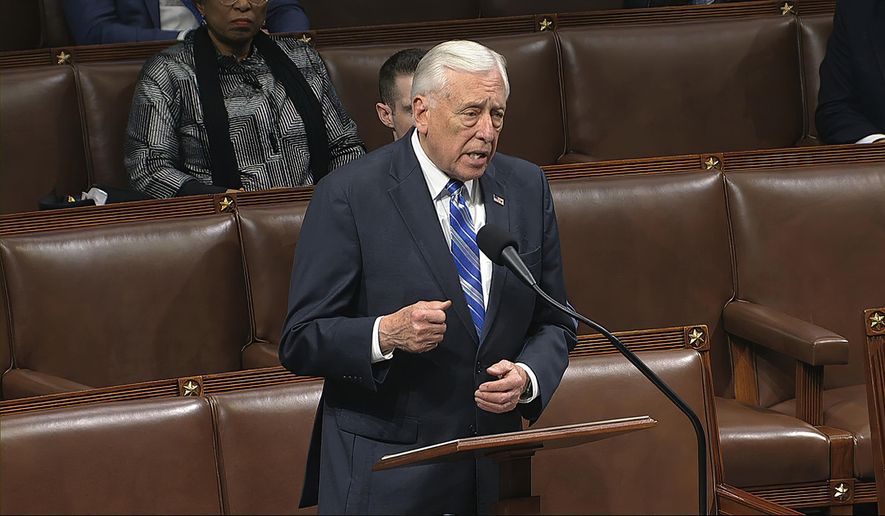House Majority Leader Steny Hoyer urged the House Rules Committee on Tuesday to reconsider the use of video-conference technology to allow for remote voting.
Mr. Hoyer, Maryland Democrat, argued that lawmakers are already using this type of technology to have their daily meetings with each other and constituents.
“These systems allow one to see and identify the person who is speaking and hear what is being said with little doubt about the identity of the participant. Used for the purposes of Floor and committee business, there would be little doubt who voted aye or nay,” Mr. Hoyer wrote in a letter to the committee.
“While any distance-voting is less optimal than in-person voting or debating in committee or on the Floor of the House, the sound and image of the Member doing so virtually is far superior to the utilization of proxies,” he added.
House Rules Committee Chairman Jim McGovern last week endorsed the vote-by-proxy policy, where members would direct other members physically present on Capitol Hill to cast their vote for them.
“This system would enable members to vote remotely in a secure way, without using the kind of technology that is susceptible to hacking or interference by foreign bad actors,” Mr. McGovern, Massachusetts Democrat, wrote in a statement.
Likewise, House Speaker Nancy Pelosi has been hesitant to embrace video-technology to allow for remote voting, citing security concerns.
Mr. Hoyer argued that the rules also need to be updated so committees can begin to hold virtual hearings.
“The House must show the American people that we continue to work hard on their behalf — because we already are,” he wrote.
The House, like the Senate, is not set to return to Washington, D.C., until May 4 because of the pandemic.
In their absence, members have repeatedly petitioned leadership to allow for remote voting, a proposal both Democratic and Republican leadership has rejected due to constitutional and security concerns.
So far leadership has been relying on unanimous consent and voice votes to pass coronavirus legislation — procedures that are easily blocked.
• Gabriella Muñoz can be reached at gmunoz@washingtontimes.com.




Please read our comment policy before commenting.